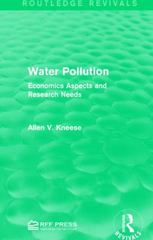Question
Monetary Policy & Debates As the title suggests, this quiz covers the concepts we have been covering the last two weeks (chapter 11). I expect
Monetary Policy & Debates As the title suggests, this quiz covers the concepts we have been covering the last two weeks (chapter 11). I expect well thought-out responses that show me that you have gone through the material. Without good responses I cannot gauge your level of understanding. If you provide me with one sentence responses, you will probably not get a good grade. Use good spelling and grammar, not doing so says a lot about the level of work you have put into the assignment. This chapter discusses monetary policy but not like we have discussed it previously. Instead, it focuses on debates regarding whether the FED should engage in it, and if it does, how it should engage in it. It also touches on other aspects of the FED's operations, like its independence while conducting monetary policy. Prior to 2008/2009, the FED and monetary policy were not something that was discussed very much in the mainstream. Most people stayed away from the subject since it was usually thought to be "too complicated". Additionally, there was an aura around the FED and what it did. Most people felt about the FED like a lot of people felt and still feel about the supreme courtthat it was an impartial non-political institution. All that ended with the Great Recession, the 2008 presidential campaigns, and the Tea Party and Occupy Wall Street movements that came out of that. The FED has been around for 108 years, it never faced as much pressure as it has felt the last 10 years. Question # 1 Chapter 11 discusses the goals of the FED, goals that it was not given in the Federal Reserve Act of 1910 but nonetheless has had for quite a while now. As we have discussed previously in the class, the argument for having a central bank in the U.S. was to ensure that there was sufficient liquidity (money, lender of last resort) during crises like the panic of 1907. The goals of the FED have been to ensure price stability, maintain high employment levels, and ensure market stability to foster economic growth. What are some controversies associated with each of those goals?
Question # 2 Chapter 11 touches on the topic of central bank independence, a topic that comes up all the time when the FED chairman reports to congress (it happens at least once a year). It's a hot political topic because, although it is not said outright, the U.S. government depends greatly on the FED in order to continue to behave like it does. The textbook provides a very mainstream discussion of central bank independence, however, this question is going to ask you to think critically about the reality of the FED's ability to act without regard for what politicians in Washington D.C. want it to do. What are the arguments presented by those that have proposed to have the FED audited by the U.S. congress (the book mentions at least three politicians)? Do you think that an audit of what the FED has done in the past, in terms of monetary policy, affects its ability to act independently? Economists have conducted studies and found that central bank independence is negatively correlated with inflation. What does that mean? If congress had direct control of the money supply, like MMT proposes, what do you think would happen?
Step by Step Solution
There are 3 Steps involved in it
Step: 1

Get Instant Access to Expert-Tailored Solutions
See step-by-step solutions with expert insights and AI powered tools for academic success
Step: 2

Step: 3

Ace Your Homework with AI
Get the answers you need in no time with our AI-driven, step-by-step assistance
Get Started


